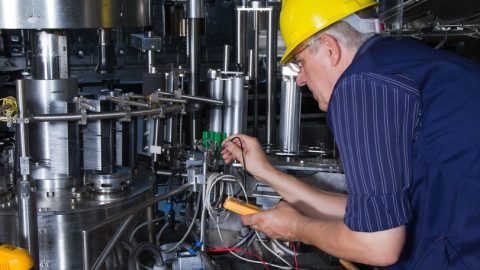
Illustration (Source: Internet)
Today, TPM is applied on an increasing scale in areas such as office TPM and technical TPM, and its value is also expanded not only in the field of maintenance, but also in supporting the management. Since the philosophy of TPM, it is considered that a machine stop for making a change; a breakdown in a machine; machine which does not work at 100% of capacity or that manufactures defective products; are intolerable situations which cause losses to the company.
The machine should be considered unproductive in all these cases, and appropriate actions designed to avoid them in the future should be taken. TPM identifies six sources of loss (called the ‘six great losses’) that reduce the effectiveness because of interfering with the production:
Below are some examples of well-known businesses that minimize losses due to TPM:
The Pirelli factory (Hoechst, Odenwald) is engaged in the production of automobile tires. The first steps in TPM dressing were taken here in 1993, where workers were trained on independent maintenance of machinery. As a result, it is possible to significantly reduce the number of incidents during equipment operation, reduce ongoing equipment repair costs, and maintain good equipment condition.
TPM points out that about 600 repair activities can be improved, with great potential but not yet exploited. By the time step 11 of TPM was reached, the factory had actually moved from equipment maintenance to managing it. Deploying TPM allows the Pirelli factory in Hoechst to significantly improve many production and technical indicators and thus increase competitiveness.
Ford, Eastman Kodak, Harley Davidson, Daimler Chrysler, General Motors, Motorola, Philips, Bosch, Siemens, Kraft Food and Colgate – all of these famous companies use TPM, helping them to become the leading companies in the their industry.
Kiev Tetra Pak Factory is the first and only enterprise in Ukraine to receive the prestigious TPM Excellence Award from the Japan Production Management Institute (JIPM), a non-profit organization organized by the Ministry of Economy and Trade. and Japanese Industry management.
Implementing the TPM system requires a lot of effort and enough time to affect the psychology of employees in the business. But those who implement this system at their factories have received tremendous results that have a strong effect on their competitive advantage in the global market.
Productivity and Quality Office